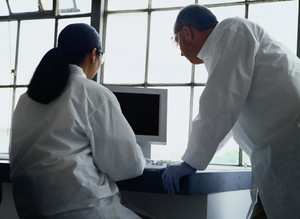Both the US House and Senate healthcare bills include language that would allow US regulators to set up a method for approving copies of biotechnology drugs. Under the proposals, biologicals would get 12 years of market exclusivity before copies could enter the market. Both US chambers must agree on final language in their overhaul measures.
Pfizer and the US Biosimilars Pathway
Home/Policies & Legislation
|
Posted 22/01/2010
 0
Post your comment
0
Post your comment

US Congress is under pressure to pass legislation creating biogenerics as a way to reduce health costs for Americans. The US Congressional Budget Office estimated that introducing copies, also called biosimilars, may save US$6.6 billion over 10 years with most of that amount coming after 2013.
“We believe it is appropriate to provide a regulatory pathway for follow-on biologics”, Pfizer Chief Executive Officer Jeffrey Kindler said during an interview on 1 December 2009 in Boston.
The US Senate proposal “strikes the right balance for providing the appropriate incentives for innovators to invest in the research necessary to discover and develop innovative biologicals while at the same time allowing a pathway for follow-on biologics to be available to patients”, he said.
Biotechnology therapies generated US$120 billion in sales in 2008, according to data from IMS Health, a Norwalk, Connecticut-based market research firm. Individually, they are among the most expensive drugs in use today. Genzyme, for instance, charges about US$200,000 a year for Cerezyme, a treatment for Gaucher disease, a hereditary disorder affecting about 10,000 people. Roche’s Avastin can cost as much as US$100,000 and treats tumours of the colon, lung, brain and breast, according to UnitedHealth Group. Roche said it offers an assistance programme that caps the cost at US$55,000 a year for patients meeting certain criteria.
Pfizer has a generics business called Greenstone, which it added through its April 2003 acquisition of Pharmacia. That operation began to increase the number of drugs it sold last year, when Mr Kindler formed a business unit headed by Mr David Simmons with its own budget and management focused on products that have lost patent protection. In 2009, Pfizer has bought rights to sell more than 150 generic products in more than 70 countries from two Indian drugmakers, Aurobindo Pharma and Claris Lifesciences. The company is in talks with Aurobindo about expanding the partnership, Mr Simmons said. The market for generics may climb to US$525 billion in 2012, or twice the 2006 level, as more medicines lose patent protection, Mr Kindler said at a conference in 2008. (see also Pfizer plans to launch biosimilars of Top 10–15 biologicals and Pfizer’s biosimilars strategy)
References:
Pfizer plans to launch versions of biotech blockbuster drugs. BIO SmartBrief. 2009 December 9
Shannon Pettypiece. Pfizer Seeks Boost From Copying Biotechnology Drugs (Update4). Bloomberg. 2009 December 9.
Source: BIO SmartBrief; Bloomberg
Guidelines
US guidance to remove biosimilar comparative efficacy studies
New guidance for biologicals in Pakistan and Hong Kong’s independent drug regulatory authority
EU accepts results from FDA GMP inspections for sites outside the US

Home/Policies & Legislation Posted 27/01/2026
WHO to remove animal tests and establish 17 reference standards for biologicals

Home/Policies & Legislation Posted 07/01/2026
The best selling biotechnology drugs of 2008: the next biosimilars targets








Post your comment